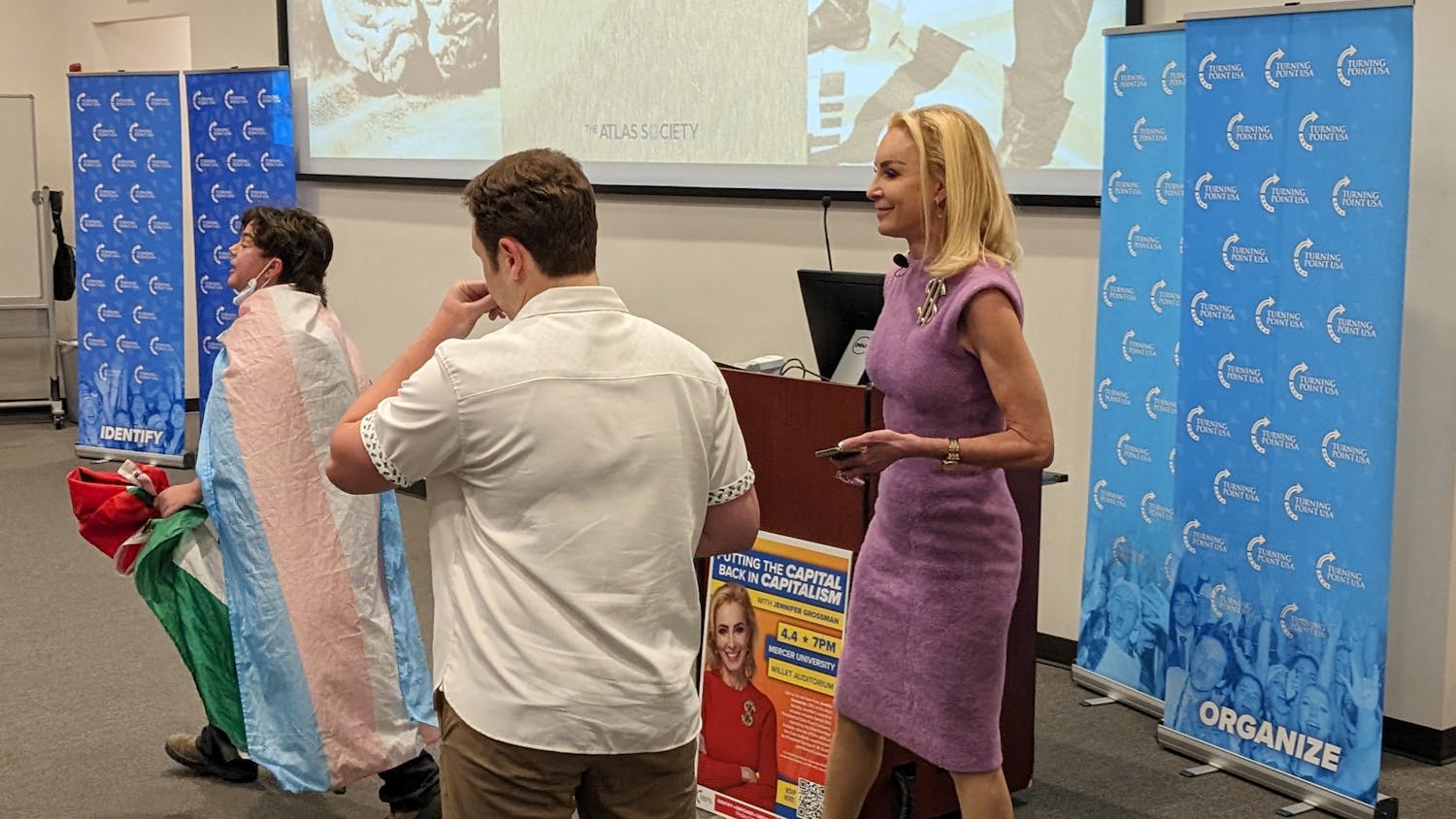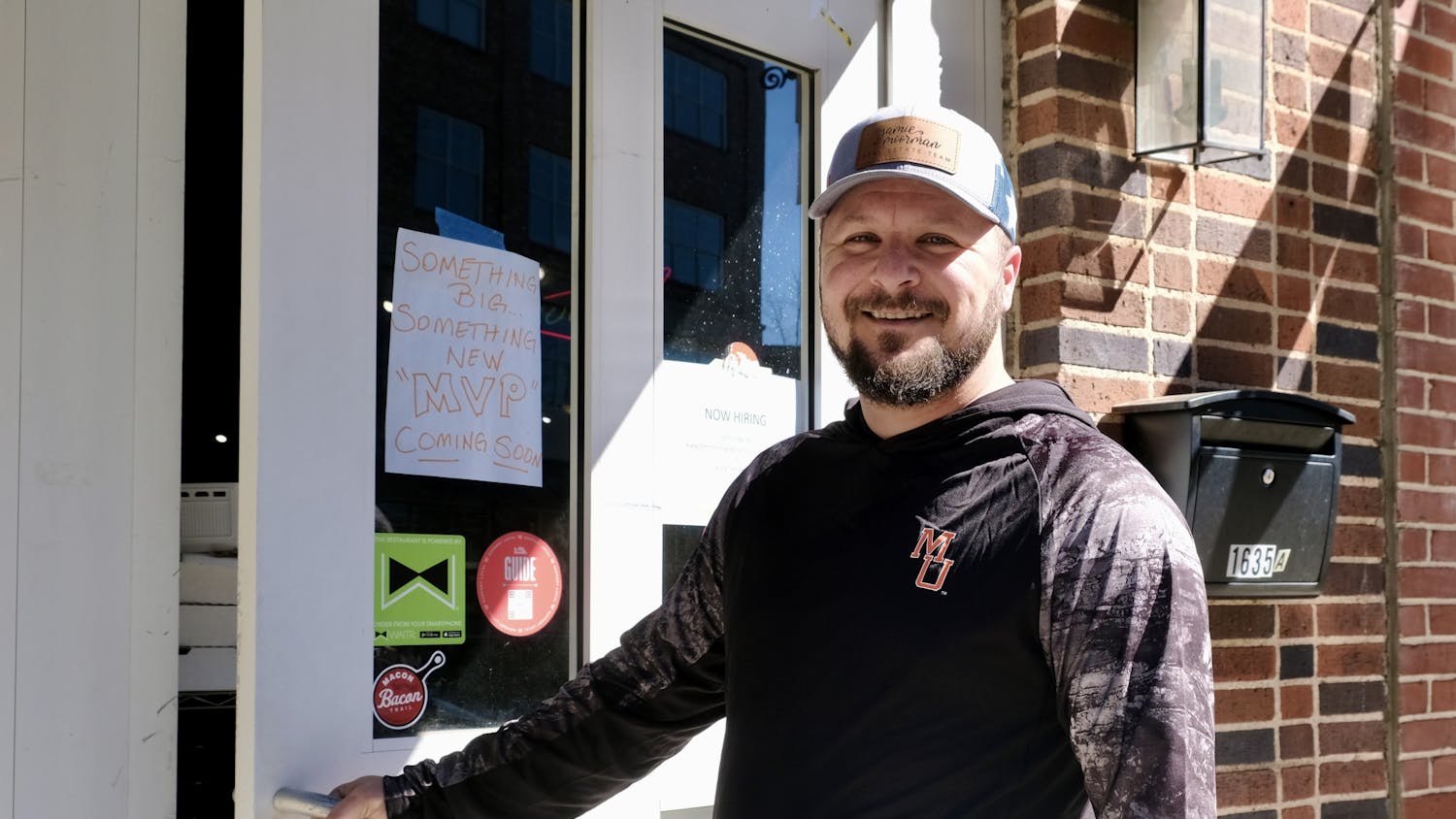Mercer’s Student Government Association in conjunction with the Office of Campus Life, the Center of Theology and the Lyceum Committee conducted a campus-wide mock presidential election from Sept. 24-28. The results showed that 55 percent voted for President Barrack Obama, while 39 percent voted for Governor Mitt Romney.
Senior Senator Brandon Ryan of SGA announced the results of the mock election at a panel hosted by the Mercer Lyceum on the evening of Oct. 2 as part of the group’s “Rebuilding Democracy” theme. More than 120 students, faculty and staff showed up to hear the election results and the ensuing discussion.
Dean of Students Doug Pearson approached SGA about holding a mock election in mid-September. The mock election was open to all students, faculty and staff at Mercer’s Macon Campus.
“[He] wanted to see where the student body stood,” said Senator Ryan.
Eligible voters cast their ballot using their MyMercer ID online. Over the four polling days, 707 votes were cast: 497 students, 211 staff and 90 faculty.
Additional questions on the ballots surveyed voters’ habits at the polls. Each survey question was voluntary.
“Volunteer samples are not legitimate, there is a response bias,” said Dr. David Nelson, associate professor of Mathematics at Mercer.
According to those surveyed, 648 respondents (92 percent) said they would vote in the actual November election.
“[That] shows you that it’s a very biased sample,” said Nelson in response to the relatively high figure.
In the actual 2008 presidential election, only 63 percent of eligible voters turned out at the polls. If the sample is reduced to eligible voters aged 18 to 20, then turnout drops to 51 percent.
Surveyees were asked what their top concerns are regarding the next four years. Each voter was given two votes: 545 answered economy, 223 answered education, 211 answered social issues, and 150 answered foreign policy.
They did not necessarily use both votes or vote at all, possibly skewing results.
“The list may not be comprehensive,” said Nelson. He notes that even the order that the options are presented may affect results.
After the announcement of the mock election results, four panelists gave speeches on why voting is important to students.
Dr. David Gushee of the School of Theology at Mercer University spoke about violence, religion, environment, immigration, healthcare and budget.
“It [voting] matters to every one of us,” said Gushee, “What happens in our [presidential] elections [in the United States of America] matters to everyone on the planet.”
“There are 25 suicides of members of military for every one who dies in combat,” said Gushee, citing a New York Times article published earlier this year.
Dr. Laurie Johnson, a professor of political philosophy at Kansas State, spoke primarily about political law in America.
“Nobody in this country was given the right to vote,” said Johnson. She gave examples of the enfranchising of black men after the American Civil War (15th Amendment), the woman’s suffrage movement in the Progressive Era (19th Amendment) and the reduction of the voting age from 21 to 18 to reflect the minimum age of soldiers serving in the Vietnam conflict (26th Amendment).
President Underwood was the fourth speaker on the Lyceum panel. Underwood is concerned with the future of the education financial system.
“I received the Pell Grant in college,” said Underwood, “I could not have received the kind of education that you all are getting without those federal programs [Pell and Government Loans].”
Underwood portrays government loans and grants for private education as investments in human capital. By his math, the government will receive a several fold return for each loan that enables students to graduate college with a degree.
“A student who receives Pell grant and gets a degree will more than pay it back in federal taxes with increased wages,” said Underwood.
Underwood does not support any politician that signs a no-tax pledge, similarly no reduction in medicare benefits.
“We must be willing to compromise,” said President Underwood, “it’s easy for us to blame the dysfunction on our political leaders, but we were the ones who elected them.”




